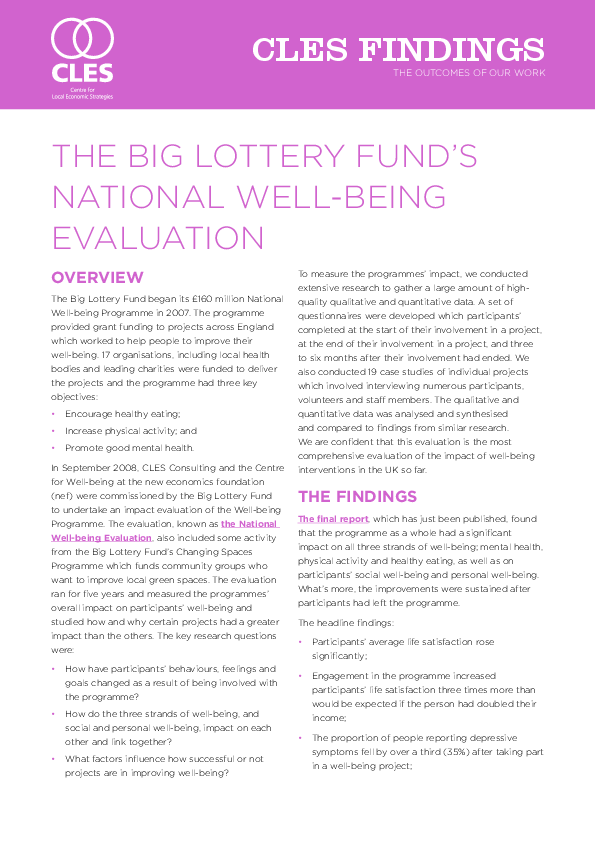The Big Lottery Fund’s National Well-being Evaluation
The Big Lottery Fund began its £160 million National Well-being Programme in 2007. The programme provided grant funding to projects across England which worked to help people to improve their well-being. 17 organisations, including local health bodies and leading charities were funded to deliver the projects and the programme had three key objectives:
- Encourage healthy eating;
- Increase physical activity; and
- Promote good mental health.
In September 2008, CLES Consulting and the Centre for Well-being at the new economics foundation (nef) were commissioned by the Big Lottery Fund to undertake an impact evaluation of the Well-being Programme. The evaluation, known as the National Well-being Evaluation, also included some activity from the Big Lottery Fund’s Changing Spaces Programme which funds community groups who want to improve local green spaces. The evaluation ran for five years and measured the programmes’ overall impact on participants’ well-being and studied how and why certain projects had a greater impact than the others. The key research questions were:
- How have participants’ behaviours, feelings and goals changed as a result of being involved with the programme?
- How do the three strands of well-being, and social and personal well-being, impact on each other and link together?
- What factors influence how successful or not projects are in improving well-being?
To measure the programmes’ impact, we conducted extensive research to gather a large amount of high-quality qualitative and quantitative data. A set of questionnaires were developed which participants’ completed at the start of their involvement in a project, at the end of their involvement in a project, and three to six months after their involvement had ended. We also conducted 19 case studies of individual projects which involved interviewing numerous participants, volunteers and staff members. The qualitative and quantitative data was analysed and synthesised and compared to findings from similar research. We are confident that this evaluation is the most comprehensive evaluation of the impact of well-being interventions in the UK so far.



